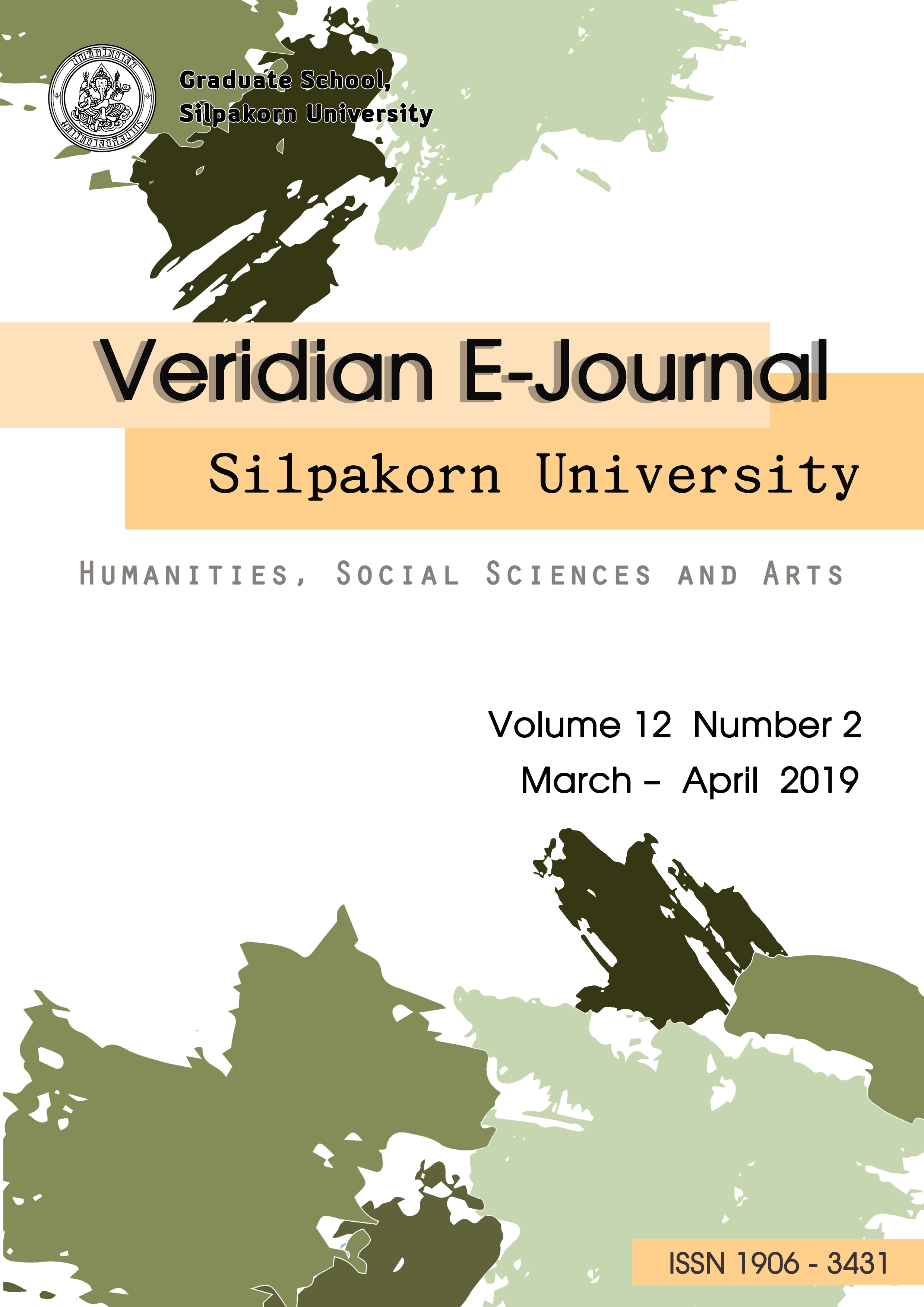การเปรียบเทียบมาตรฐานการบัญชีไทยกับนโยบายการบัญชีที่ดินและผลกระทบต่องบการเงินของกองทุนการปฏิรูปที่ดินเพื่อเกษตรกรรม (The Comparison between Thai Accounting Standard and Accounting Policy for Property and Impact on Financial Statements of Agricultural Land Reform Fund)
Main Article Content
Abstract
การศึกษานี้ มีวัตถุประสงค์เพื่อเปรียบเทียบนโยบายบัญชีที่เกี่ยวกับที่ดินของกองทุนการปฏิรูปที่ดินฯ กับมาตรฐานการบัญชีไทย ในเรื่อง ที่ดิน อาคารและอุปกรณ์ อสังหาริมทรัพย์เพื่อการลงทุน และสินค้าคงเหลือโดยศึกษาถึงความเหมาะสมในการเลือกใช้นโยบายบัญชีเกี่ยวกับที่ดิน และผลกระทบจากวิธีปฏิบัติ ที่มีผลต่ออัตราส่วนทางการเงิน ซึ่งได้เก็บข้อมูลทุติยภูมิจากมาตรฐานการบัญชี รายงานประจำปี และงบการเงินของกองทุนการปฏิรูปที่ดินฯ ย้อนหลัง 5 ปี 2554-2558 โดยใช้การวิเคราะห์เชิงพรรณนา ผลการศึกษาพบว่า วิธีปฏิบัติทางบัญชีเกี่ยวกับที่ดินของกองทุนการปฏิรูปที่ดินฯ ที่สอดคล้องกับมาตรฐานการบัญชีไทย ได้แก่ การรับรู้รายการเริ่มแรก การวัดมูลค่าเริ่มแรกของที่ดิน การตัดรายการที่ดิน และการเปิดเผยข้อมูลในหมายเหตุประกอบงบการเงิน สำหรับประเด็นที่ไม่สอดคล้องกับมาตรฐานการบัญชี ได้แก่ การจัดประเภทรายการที่ดิน และต้นทุนที่เกิดขึ้นภายหลังการได้มาของที่ดิน ซึ่งในขั้นตอนที่มีวิธีปฏิบัติทางบัญชีแตกต่างจากมาตรฐานการบัญชีที่เกี่ยวข้อง อาจส่งผลกระทบต่อตัวเลขในงบการเงิน ดังนั้นงบการเงินต้องถูกปรับปรุงขั้นตอนการบันทึกบัญชีที่เกี่ยวข้องตามความเหมาะสม ผลการทดสอบ พบว่า มีความแตกต่างกันอย่างมีนัยสำคัญ หลังการปรับปรุงตัวเลขในงบการเงิน คือ อัตราส่วนหนี้สินต่อสินทรัพย์รวม และอัตราส่วนหนี้สินต่อส่วนของเจ้าของ ซึ่งนำสู่บทสรุปที่ว่า การเลือกใช้นโยบายการบัญชีเกี่ยวกับที่ดินมีผลต่อการตัดสินใจในการบริหารจัดการที่ดินของกองทุนการปฏิรูปที่ดินฯ
The objectives of this research were to compare property accounting policy regarding Agricultural Land Reform Fund with Thai Accounting Standard (TAS) in terms of property, plant and equipment, investment property and inventories; and to investigate the suitability to administer the property accounting policy and the implementation impact resulting on financial ratio. Data were collected from secondary sources including Thai Accounting Standard, annual reports, and financial statements of Agricultural Land Reform Fund dated back from 2011 to 2015. The data were analyzed and descriptive statistics were applied.
The research revealed that Agricultural Land Reform Fund’s accounting policies were consistent with Thai Accounting Standard including the first statement recognition, initial measurement, disposal and disclosure of property. Concerning inconsistent issues property classification and cost after property possession which differed in terms of accounting procedures and consequently had impact on the financial statements which, therefore, needed to be improved in the area of appropriate accounting procedures. The results showed that there were significant differences in the improved financial statements including Debt to Total Assets Ratio and Debt to Equity Ratio. This could be concluded that the selection of property accounting policies affected decision making on the administration of Agricultural Land Reform Fund.

